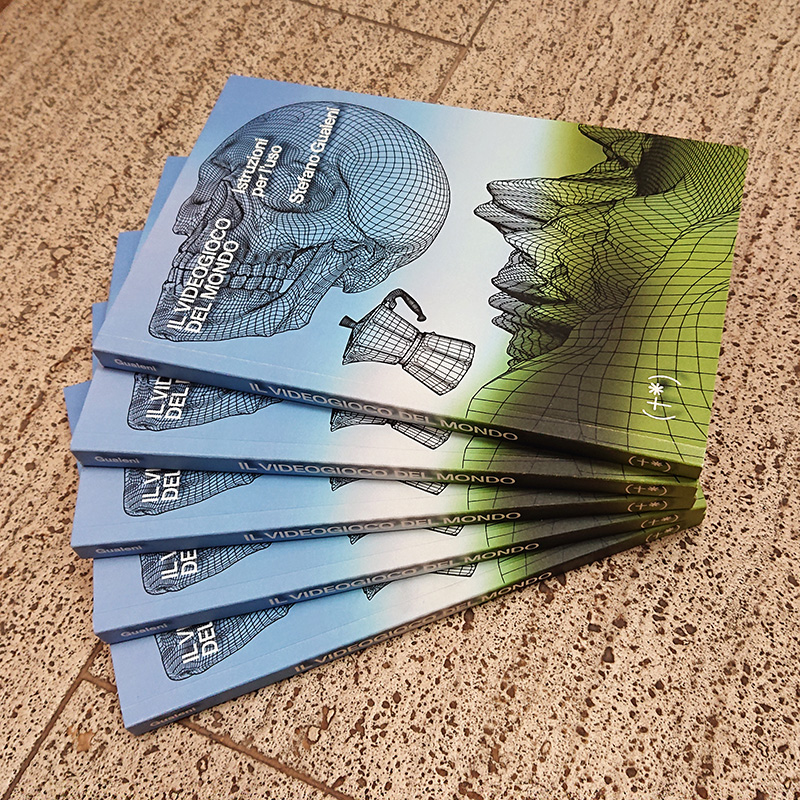
'The Videogame that is the World' (a NEW BOOK)


Il Videogioco del Mondo ('The Videogame that is the World', 2024) is a new book by our Prof. Stefano Gualeni!
It is a philosophical essay written for a general audience (in ITALIAN) and published by the prestigious publishing house Time0 (Palermo, Italy), whose editorial line concentrates its attention on themes related to speculation, utopia, and worldbuilding.
The Book
Il Videogioco del Mondo offers various tools and perspectives to help the readers think about virtual worlds and playfulness, and about what it is like to exist as a human being in this day and age. It is not an academic book: it is a free-form (and often autobiographical) exploration of the philosophical implications and cultural dimensions of videogames.
Stefano's new book is - thus - highly interdisciplinary, bridging the gap between philosophy of technology, game design, media studies and cultural studies. This approach allows his text to observe and discuss videogames from a variety of perspectives, offering insights that are relevant to scholars and practitioners across different fields. This makes Il Videogioco del Mondo valuable for anyone interested in understanding the broader implications of video games in contemporary culture. As such, it is an ideal read for researchers, students, and professionals who are beginning their scholarly journey in game studies and digital culture.
The book also considers videogames as cultural artifacts that reflect and contribute to shape societal values, behaviors, and ideologies. In line with the Digital Humanities Research ambitions of the Institute of Digital Games, Il Videogioco del Mondo focuses on how games influence and are influenced by the cultural contexts in which they are created and played.
The Digital Humanities Research Group
The Digital Humanities Research Group at the University of Malta tackles topics at the intersection of digital technologies and subjects in the humanities, such as philosophy and literature. This crossroads is the natural home of digital games, as they are multidisciplinary creations, combining art, music, writing and design with cutting-edge digital technology, and engaging with philosophical, literary and aesthetic concepts in the language of computation. As such, game scholars often find themselves doing research at exactly the crossroads referred to as digital humanities.

